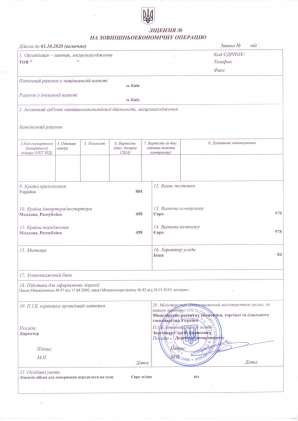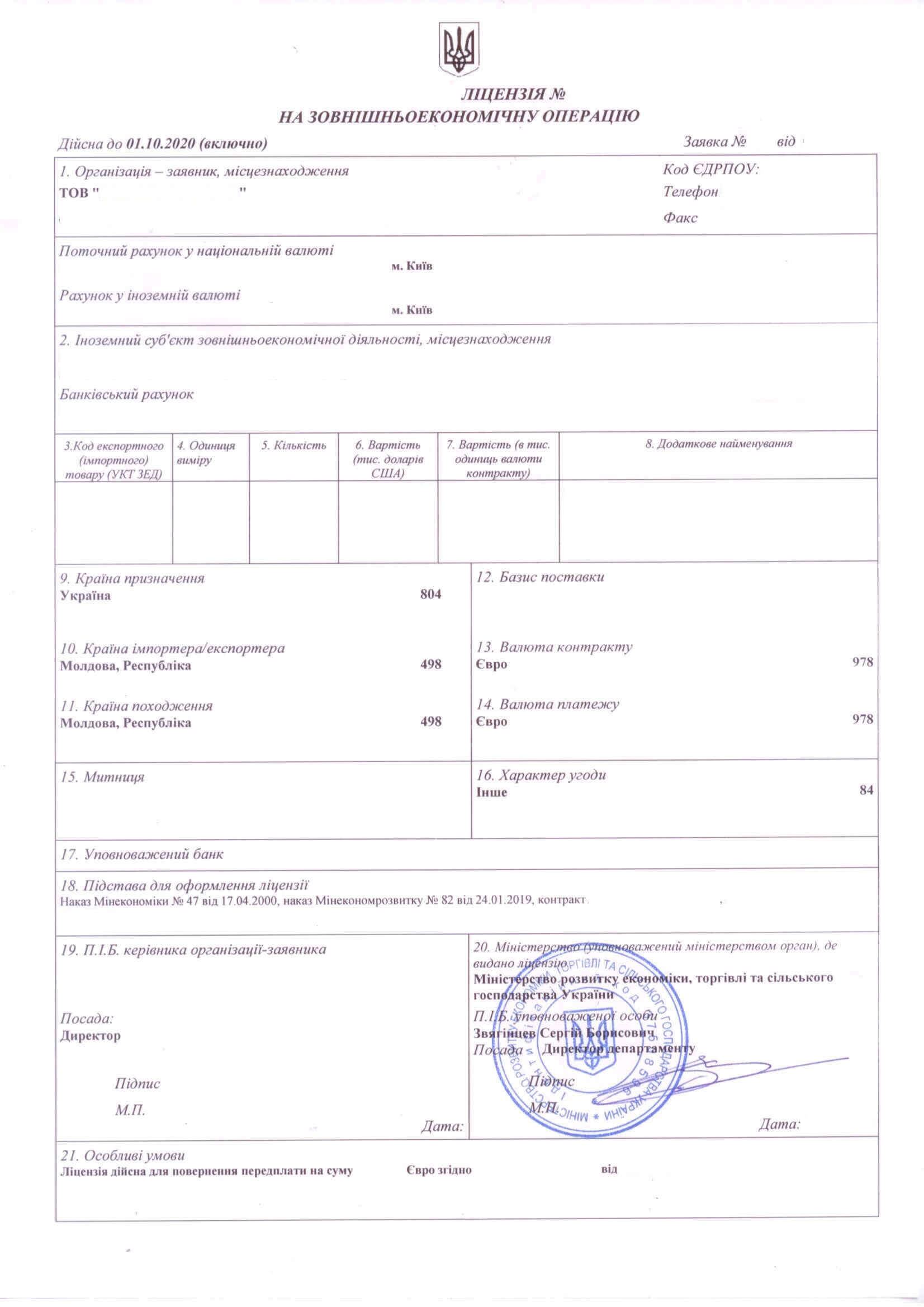Calculations of foreign economic activity under martial law
Cost of services:
Reviews of our Clients
... our work on joint projects assured us of your high level of professionalism
The ongoing situation in Ukraine is having its impact on businesses. With regular changes in legislation, including those related to foreign economic activities (FEA), business managers have realized that they can't afford to wait for things to return to normal. Instead, they need to take action now and adapt their business operations to the new "rules of the game."
Since February 24, 2022, Resolution No. 18, issued by the Board of the National Bank of Ukraine (NBU), has introduced several restrictions concerning FEA. One significant development is the concept of "critical imports" - a list of goods and services that are deemed vital for the country's survival and business activities during times of war.
Companies involved in importing goods have faced limitations on currency purchases and FEA transactions during the period of martial law. For businesses whose core operations don't fall under the "critical market" category, they have found themselves facing significant obstacles as they couldn't fully conduct their activities in Ukraine or settle debts with non-resident suppliers.
Please note! Starting from July 1, 2022, a new law will come into effect, bringing changes to the Tax Code and reinstating the assessment and payment of taxes and duties on imported goods and services. This change has allowed the majority of businesses to resume their operations. For more detailed information about the new developments regarding FEA in Ukraine.
You may also like: Import and Export Quotas: Managing Trade Operations
Repayment deadlines for import-export operations during a state of martial law
Repayment deadlines for import-export operations during a state of martial law have been impacted by changes in the legislation governing foreign economic activity (FEA):
- For import-export operations conducted after April 5, 2022, the payment deadline for these transactions has been extended to 180 days (previously it was 120 days until July 9, 2022).
- For import-export operations conducted before April 5, 2022, the payment deadline remains at 365 days.
Reduction of the period for using acquired currency
In an effort to alleviate pressure on the currency market, starting from July 11, 2022, the National Bank of Ukraine (NBU) has reduced the period for using the acquired currency in FEA transactions from 10 working days to just 2 working days.
On July 7, 2022, the Ukrainian Cabinet of Ministers passed a resolution allowing the importation of goods from all categories of the Ukrainian Classification of Goods for Foreign Economic Activity and the acquisition of currency for transactions with non-residents, effective from July 9, 2022. As a result, the concept of "critical imports of goods" has been abolished.
Additionally, the acquisition of currency and subsequent currency transactions are now permitted for the following purposes:
- "Critical import of services"
- Settlements with microfinance organizations or their representatives
- Refund of prepayment to non-residents if the advance payment was received after February 23, 2022, and you are unable to fulfill contractual obligations
- Alimony payments
- Payments for education at foreign educational institutions
- Payments for medical treatment at foreign medical facilities (including transportation expenses for patients)
- Expenses related to the death of citizens.
Exception: Services falling under the category of "critical imports". Enterprises are only allowed to import services, works, intellectual property rights, and non-property rights that are listed and approved by the resolution of the Ukrainian Cabinet of Ministers No. 761 dated July 7, 2022.
Based on this information, it can be concluded that debts related to the import of services remain unresolved. If your company is among those unable to settle payments with non-residents for delivered goods or services, there are several options available to help resolve the situation.
You may also like: Customs Value of Goods: How to Determine it?
Method 1: Offsetting Existing Debts
You can choose this option if you have contracts and outstanding debts with the same client, both in terms of receiving services or goods and providing them.
To offset the debts, certain conditions must be met simultaneously:
- The claims between the parties must be reciprocal, meaning that the creditor of one obligation is the debtor of another.
- The claims must be of the same nature, such that a monetary debt is offset against another monetary debt, and a goods debt is offset against another goods debt.
- The maturity dates of the debts have already passed.
There are no restrictions on offsetting debts during wartime. However, in practice, internal regulations from the National Bank of Ukraine (NBU) provide additional guidelines. Our bank employees have the necessary information on how to proceed in each situation. Therefore, before offsetting debts for our clients, we consult with the bank manager to obtain approval for the operation.
The offsetting of existing debts is documented through a Debt Offset Agreement.
In terms of accounting, the offset of debts between contracts is recorded. There are no tax implications.
Method 2: Settling Debts after Transfer of Creditor Rights
The transfer of creditor rights refers to the process of a creditor assigning debt to a third party (a new creditor), either with or without compensation. Essentially, a company purchases someone else's debt, either with or without a commission, and becomes the new creditor. In this scenario, the debtor's consent is not required, but they must be formally notified in writing about the change of the current creditor.
To settle debts after the transfer of creditor rights, a Rights Assignment Agreement is drafted.
From an accounting perspective, the debt transfer from the old creditor to the new one is recorded. There are no tax implications.
Method 3: Debt Forgiveness and Income Recognition
Given the ongoing military situation and economic instability in Ukraine, many companies are facing difficulties in settling their debts with creditors. In some cases, foreign entities may choose to forgive a portion or even the entire debt owed by Ukrainian companies.
This resolution is formally documented through a supplementary agreement, where the creditor explicitly states that they no longer require repayment of the debt.
Note: without this supplementary agreement, the creditor retains the right to take legal action and demand repayment of the debt, along with any additional penalties specified in the original contract.
From an accounting perspective, the forgiven debt amount is recorded as Other Income in the resident company's financial records.
In terms of taxation:
1) Corporate Income Tax: The forgiven debt amount is treated as income and subject to the standard corporate income tax rate of 18%.
2) Value-Added Tax (VAT): If the transaction was subject to VAT, the company may have been eligible to claim a VAT credit (such as for imports with VAT paid at the customs border). However, in the case of debt forgiveness, there is no need to make adjustments or reassess VAT credits.
Our company offers a range of services to support foreign trade activities, including:
- Analysis, review, and assistance in drafting foreign trade contracts.
- Support for import and export operations, including guidance through customs procedures in Ukraine.
- Assistance in handling financial settlements related to foreign trade contracts.
- Expertise in resolving conflicts that may arise during foreign trade activities, and more.
If you require not just answers to your questions but also professional legal assistance, please don't hesitate to contact us.
The cost of services for importing and exporting goods can be found here.
The cost of accounting support and consultancy can be found here.







